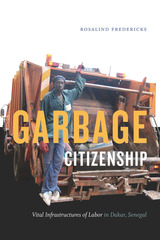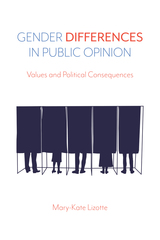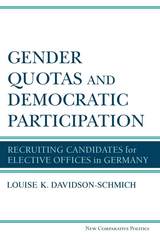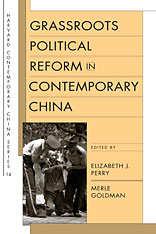6 start with G start with G


In this era in which more women are running for public office—and when there is increased activism among women—understanding gender differences on political issues has become critical. In her cogent study, Mary-Kate Lizotte argues that assessing the gender gap in public support for policies through a values lens provides insight into American politics today. There is ample evidence that men and women differ in their value endorsements—even when taking into account factors such as education, class, race, income, and party identification.
In Gender Differences in Public Opinion, Lizotte utilizes nationally representative data, mainly from the American National Election Study, to study these gender gaps, the explanatory power of values, and the political consequences of these differences. She examines the gender differences in several policy areas such as equal rights, gun control, the death penalty, and the environment, as well as social welfare issues. The result is an insightful and revealing study of how men and women vary in their policy positions and political attitudes.



Junkanoo is the national cultural festival of The Bahamas. It fosters a sense of community pride, identity, companionship, spirituality and unity. Watch a video about Junknoo:
https://www.youtube.com/watch?v=tnMpMesNb1Q&t=14s

Observers often note the glaring contrast between China's stunning economic progress and stalled political reforms. Although sustained growth in GNP has not brought democratization at the national level, this does not mean that the Chinese political system has remained unchanged. At the grassroots level, a number of important reforms have been implemented in the last two decades.
This volume, written by scholars who have undertaken substantial fieldwork in China, explores a range of grassroots efforts--initiated by the state and society alike--intended to restrain arbitrary and corrupt official behavior and enhance the accountability of local authorities. Topics include village and township elections, fiscal reforms, legal aid, media supervision, informal associations, and popular protests. While the authors offer varying assessments of the larger significance of these developments, their case studies point to a more dynamic Chinese political system than is often acknowledged. When placed in historical context--as in the Introduction--we see that reforms in local governance are hardly a new feature of Chinese political statecraft and that the future of these experiments is anything but certain.
READERS
Browse our collection.
PUBLISHERS
See BiblioVault's publisher services.
STUDENT SERVICES
Files for college accessibility offices.
UChicago Accessibility Resources
home | accessibility | search | about | contact us
BiblioVault ® 2001 - 2024
The University of Chicago Press









